Soviets Hid Nuclear Bunkers in Poland's Forests (Photos)
Keeping secrets
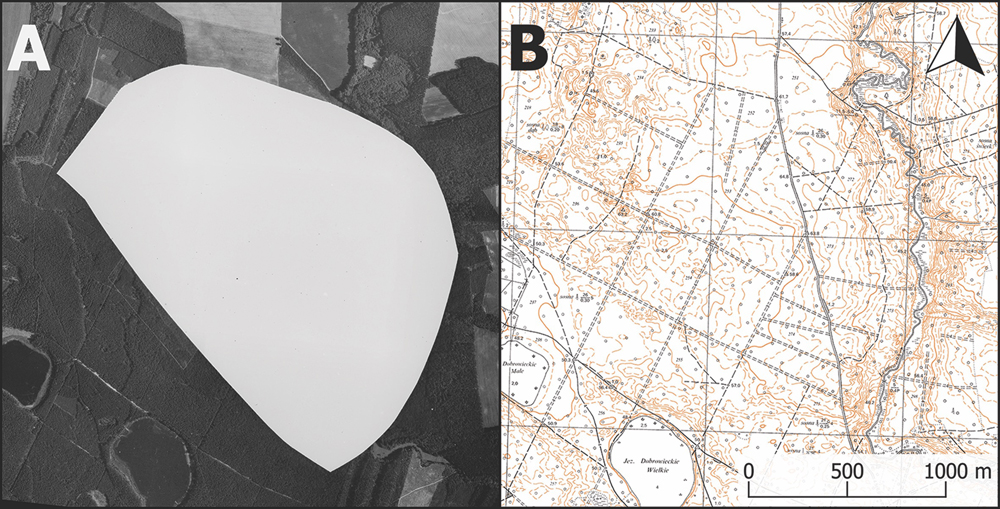
The left image shows a censored aerial photograph of the Podborsko nuclear military base from 1975, while the image to the right exhibits part of a 1970s civilian topographical map. The presence of any military installations is absent. [Read more about the hidden bunkers]
Hidden structures
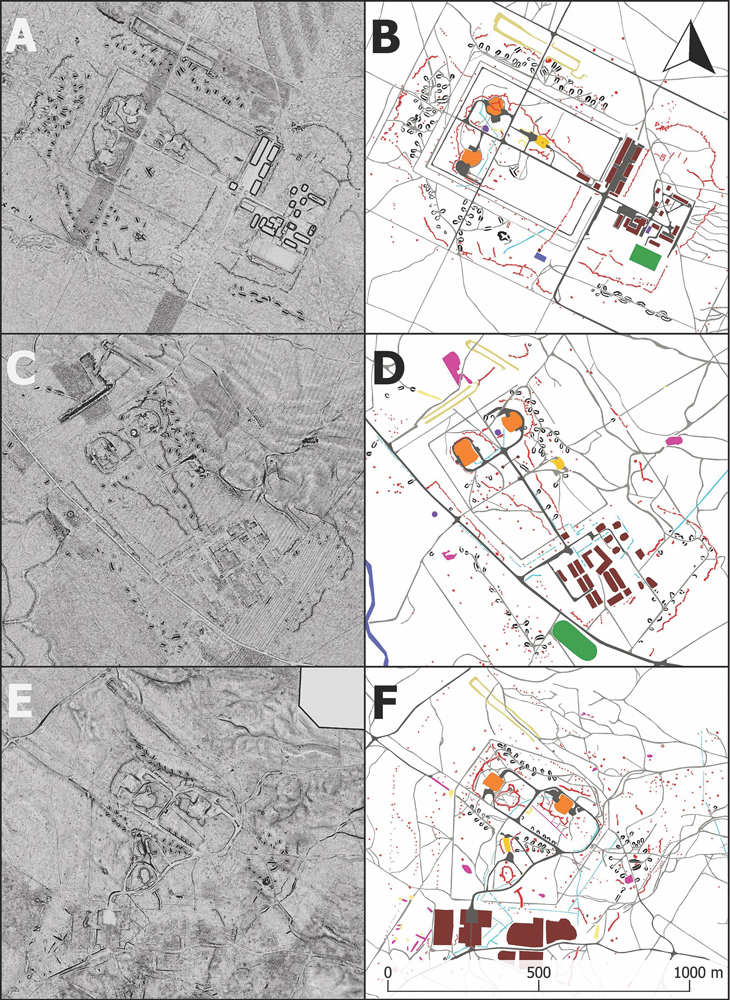
Using airborne laser-scanning data visualizations with positive openness (seen on the left), experts created vectorized plans of several Russian military nuclear bases in Poland. Seen on the right, at the top, is the Podborsko base; in the center is the Brzezńica Kolonia base; and near the bottom is the Templewo base.
Heavily protected
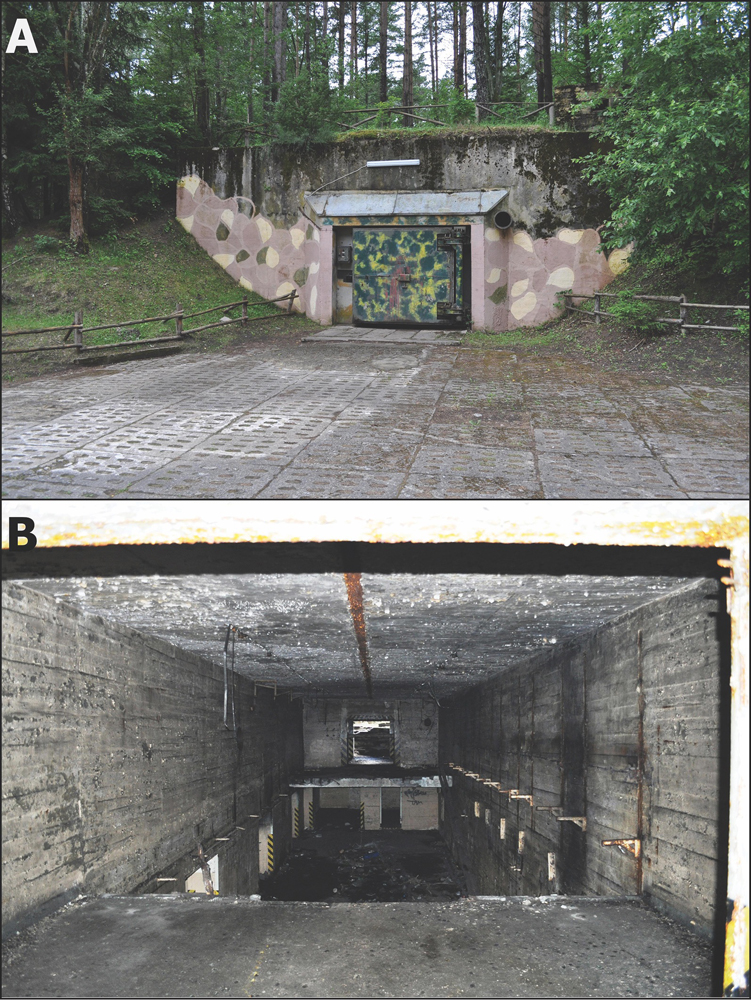
The upper image displays a "Monolit" bunker in its original condition at Podborsko nuclear military base site. A modern fluorescent lamp has been added to the exterior of the bunker and a recent paint job reveals a failed attempt to reconstruct the camouflage pattern. The lower image reveals a plundered "Monolit" bunker at Brzezńica Kolonia.
A day in the life
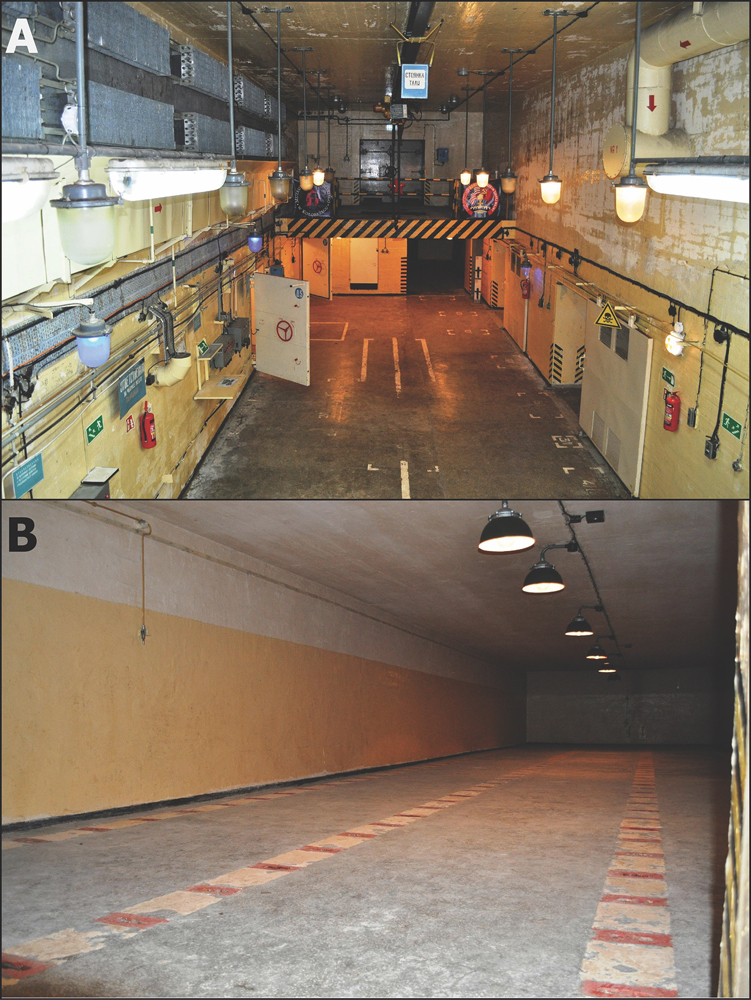
These photos exhibit a Podborsko "Monolit" bunker, including original furnishings. The main chamber holds a crane and loading ramp, as well as a cooling and ventilation system. The second image shows one of four rooms that were used to store nuclear warheads.
Slow and steady expansion
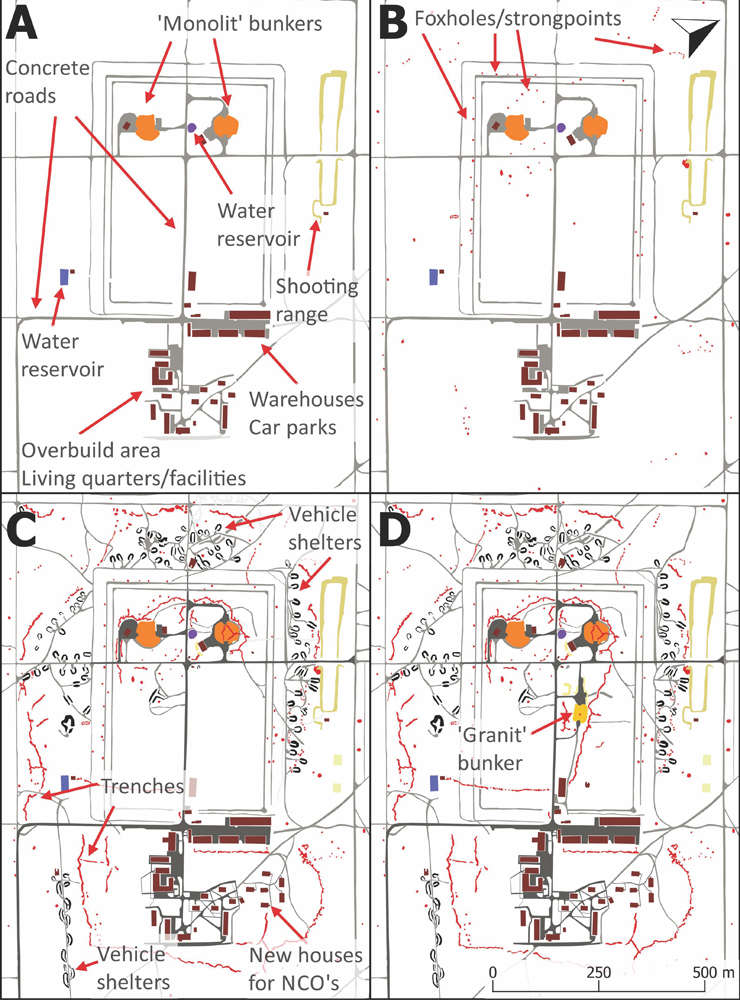
These figures were created from airborne laser-scanning data and satellite images. They depict four consecutive building and explasion phases of the Podborsko base.
Obscured evidence
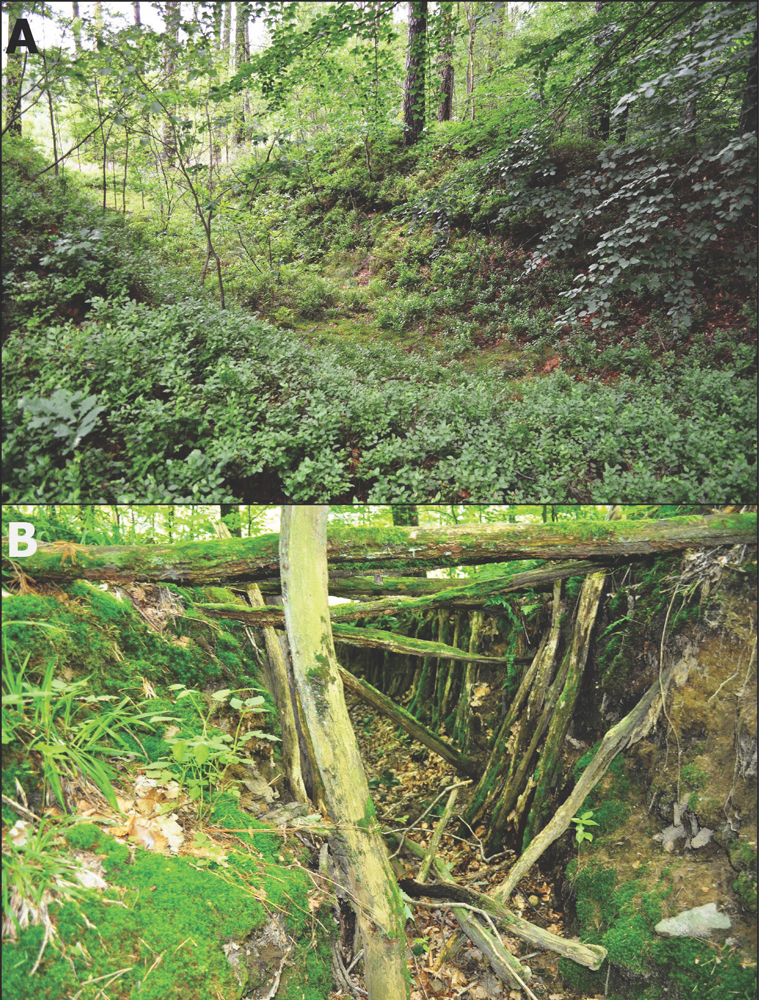
In the top image, a vehicle shelter lies in ruins at Podborsko. In the lower image, remnants of trenches at Templewo base are visible.
Strongholds
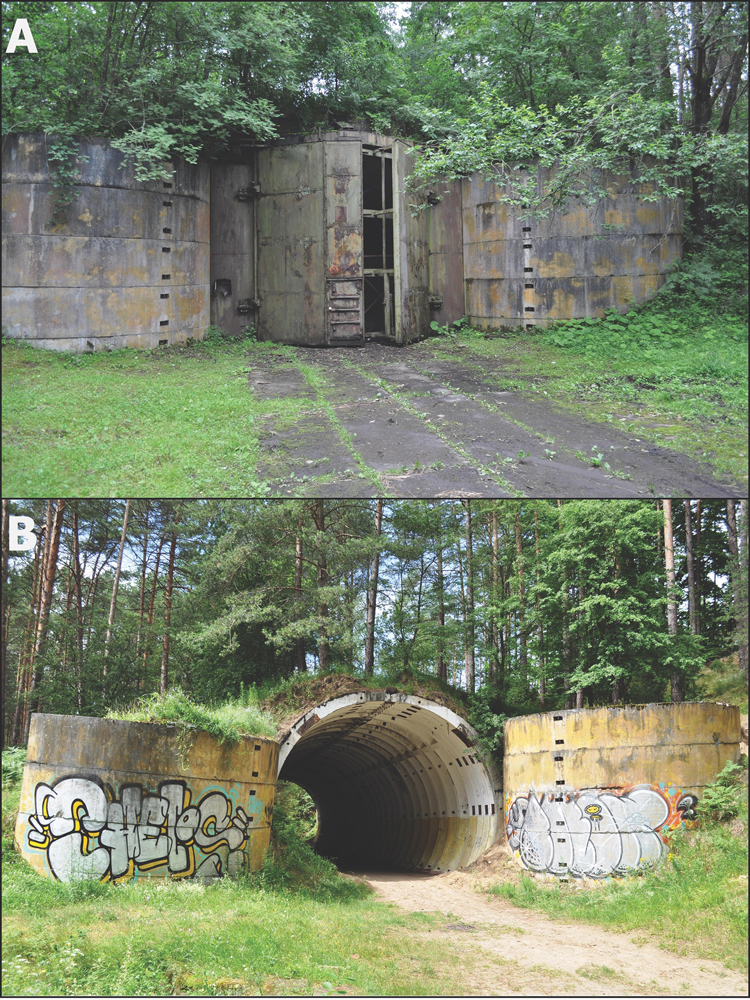
These images show bunkers at Podborsko (top photo) and Brzezńica Kolonia. These bunkers were one-story structures buried under a thick layer of earth, and made with prefabricated concrete elements. The graffiti is a modern-day addition.
Sign up for the Live Science daily newsletter now
Get the world’s most fascinating discoveries delivered straight to your inbox.
Work and play
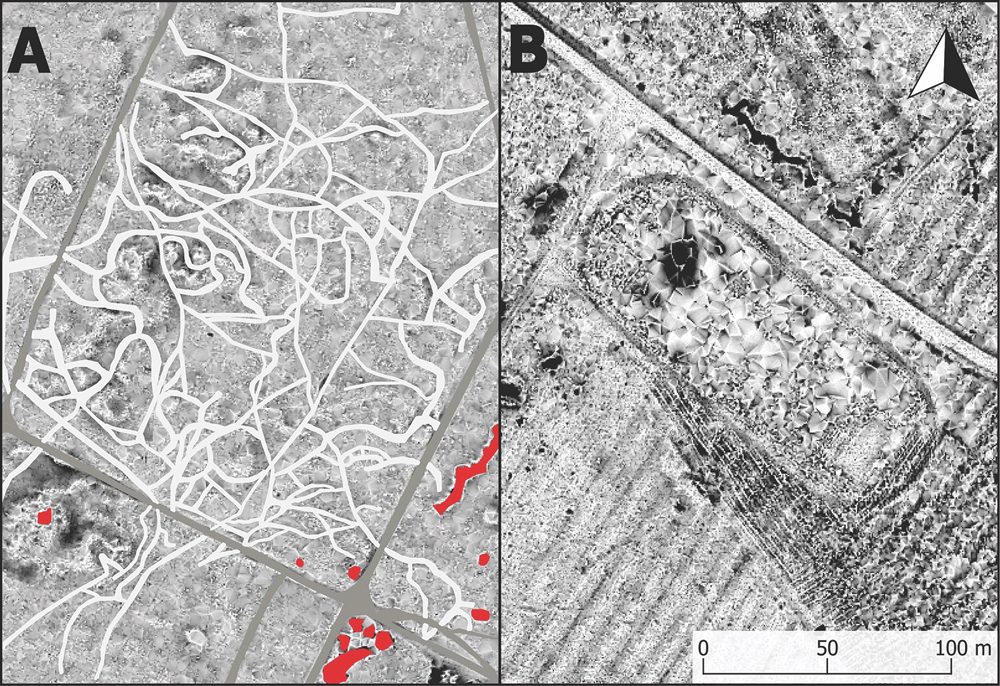
In figure A of this set of images, patrol paths were discovered using airborne laser-scanning with derivative-positive openness. Figure B depicts the remains of Brzezńica Kolonia's football pitch and running track, which were first seen in 1984 by the Landsat satellite program, overseen by NASA and the U.S. Geological Survey.
Secret but known
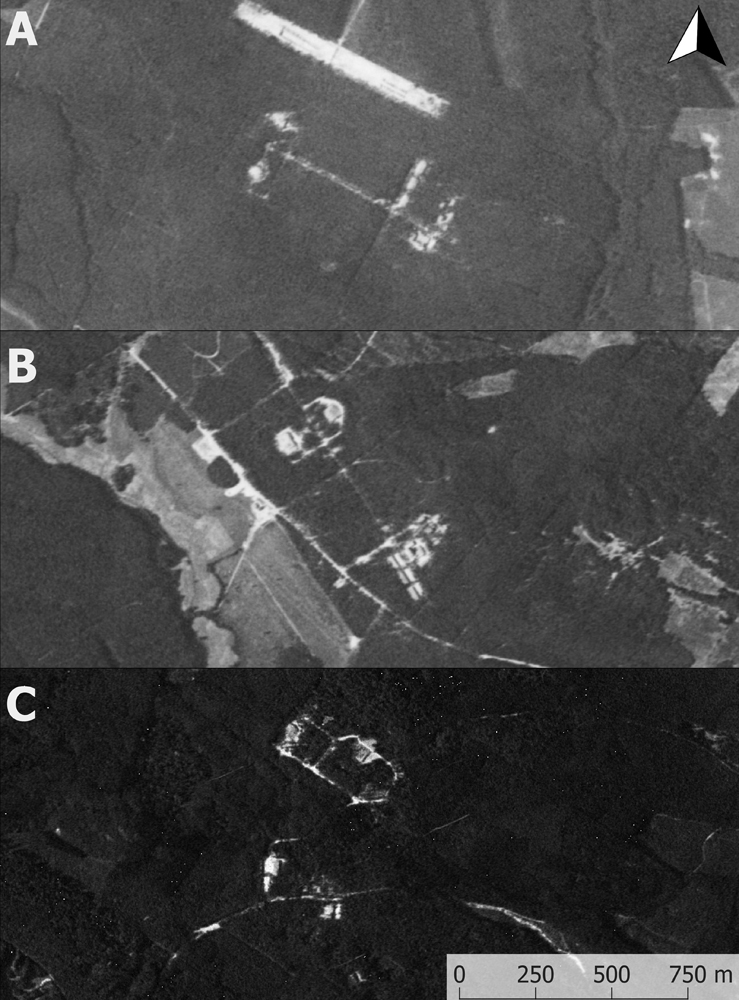
These three images reveal declassified U.S. spy satellite images of Soviet nuclear military bases at, from top to bottom: Podborsko, Brzezńica Kolonia and Templewo.
Bird's eye view
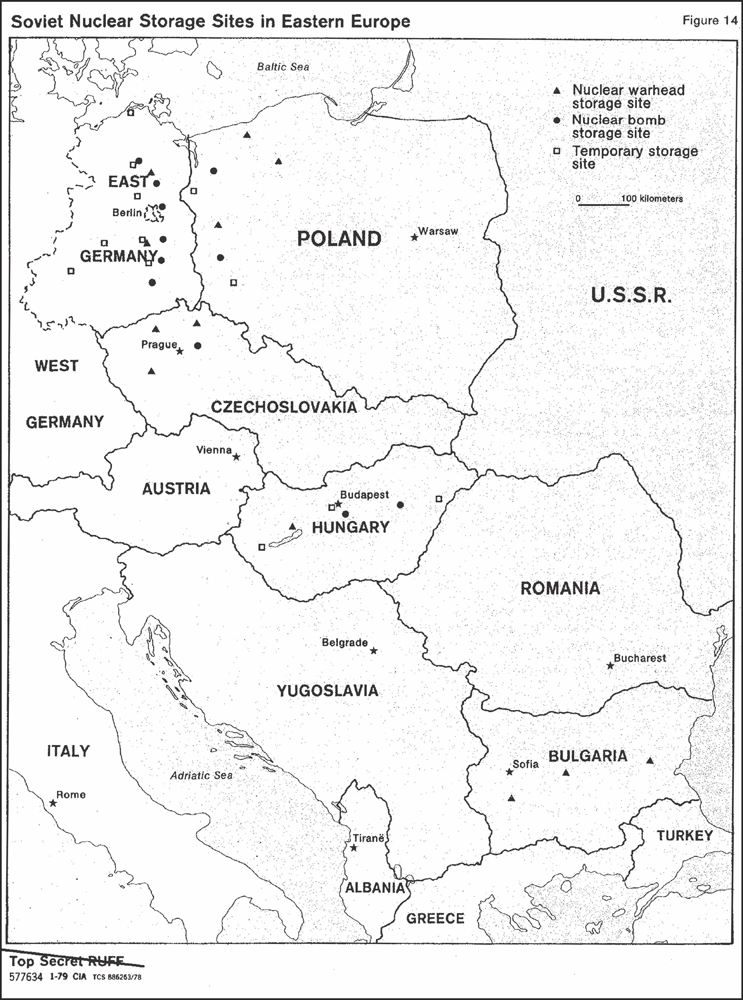
A declassified CIA report entitled "Warsaw Pact Forces Opposite NATO' from Jan. 31, 1979, disclosed this map, with the nuclear bases noted.










